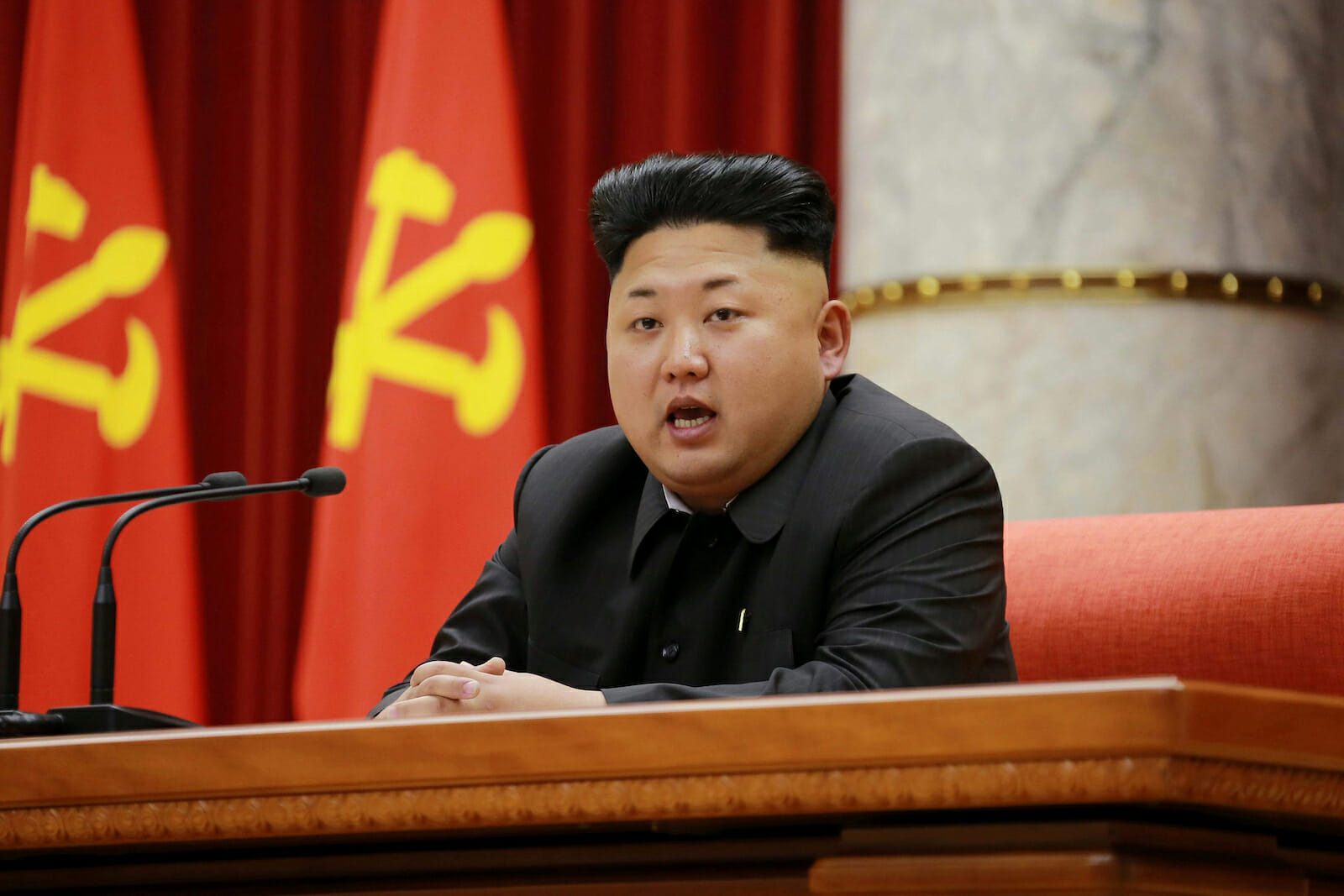
North Korean Provocations will not Lead to War
The media has been reporting often (with speculation) about the latest string of threats emanating from North Korea, including possible nuclear attacks on Seoul, Tokyo, and Guam, a United States territory in the Pacific Ocean. The speculation on what will happen in Northeast Asia implies that no one can be certain about the intentions of the reclusive yet bellicose Kim Jong-un. The general consensus worldwide is that the North Korean regime is neither rational nor trustworthy, and therefore the international community should take its threats very seriously.
However, this is not the first time that a Northeast Asian leader and his regime have been labeled irrational and unpredictable. In 1950, analysts in the United States made similar judgements of Mao Zedong as a volatile leader as well. Two major foreign policy decisions by Mao – to enter the Korean War against the US in 1950, within a year of the founding of the People’s Republic of China, and to openly split with the Soviet Union in 1960 – were used as evidence of his “irrationality” by US analysts.
By drawing parallels between North Korea’s current sabre-rattling and Mao’s security posturing in the 1950s and 1960s, it is possible to introduce the perspective that Kim is acting according to an old script; his intention is to bolster sagging domestic support and strengthen North Korea’s international bargaining position. North Korea wants something, but it’s clearly not war.
Mao, although an unorthodox leader, was not irrational; the logic behind his decision to take on the US, and later the USSR, was domestic in nature. Mao needed to prove to the Chinese people that China was no longer the ‘sick man of Asia,’ and that the Chinese Communist Party was legitimate and strong enough to lead China to stand-up to outside powers. In defying two behemoths at once, China could wash away the shame of humiliating defeats at the hands of colonial powers in the previous century.
In 1950, Mao strategically and correctly calculated that the US would not wish to enter into a protracted war with China. Not only was China too large to occupy, but the Chinese Communists had also proven themselves to be very capable fighters in the previous civil war. By entering the Korean War in support of the North, Mao gained prestige and legitimacy in the eyes of both the Chinese people and within the Communist Bloc, which was necessary for the fortification of authority in the newly-founded People’s Republic. Ten years later, Mao openly broke ranks with Nikita Khrushchev, Stalin’s successor, and withdrew from the Communist Bloc. By exiting the Soviet-led communist community of nations, China was isolated and vulnerable to both Russia and the United States. Knowing the people were adamant to regain their independence as a nation, and through pursuing a confrontational foreign policy, Mao cleverly used the perilous international situation to cement his domestic support. He understood that foreign policy is an extension of domestic policy, and ultimately any policy is designed to secure and preserve the ruling regime.
Superpowers would never have been able to sustain a drawn-out war against China, and in threatening war, he gained the respect of his peers in the Politburo and the adoration of millions.
Striking similarities in tactics can be seen in Kim Jong-un’s political style, and although young and inexperienced, as a leader he must earn the respect of his generals and the North Korean people. The country has been ravaged by decades of underdevelopment and North Koreans are starved and oppressed. In order to assert his authority over his generals, and gain their support, Kim is following his father, grandfather, and ultimately Mao’s example by sabre-rattling to throw off larger powers. Kim and his strategists know that the US-South Korea alliance has no appetite for a land invasion of North Korea; by appealing to its history of being on the receiving end of external aggression, the North Korean regime has been able to propagate a myth of a country under siege amongst its subjects. Kim has appealed to nationalism and an imminent existential threat emanating from the United States as a justification for the regime to remain in power.
Mao knew from his experience in the war against the Kuomintang and the Japanese occupation in the Second World War, that even if there was a nuclear attack on China by one of the global superpowers, the size of China made it impossible for any force to occupy or control it. Similarly, Kim and his advisors are aware that a US-backed South Korea land invasion is unlikely. Because an invasion of North Korea would not be welcomed by China, as it would have to contend with millions of refugees consequential to an invasion, North Korea can threaten its instability to elicit China to do what it can to prevent a raid from the South. North Korea’s nuclear capacity is also a strategic deterrent to any potential land invasion. Therefore, North Korea knows that it can make threats against South Korea and others without any serious repercussions to its own security until Kim gets what he wants.
There are a number of goals met by increasing tensions on the Korean Peninsula; Kim can succeed on tightening his grip on power if he can raise nationalistic feelings and reinforce a sense of siege amongst the population. His actions may not instigate an actual war, but they strengthen his hand as a leader and will elevate the status of Pyongyang in the minds of the North Koreans when he eventually sits down at the negotiation table to dictate North Korea’s own terms with regional powers and the US.

